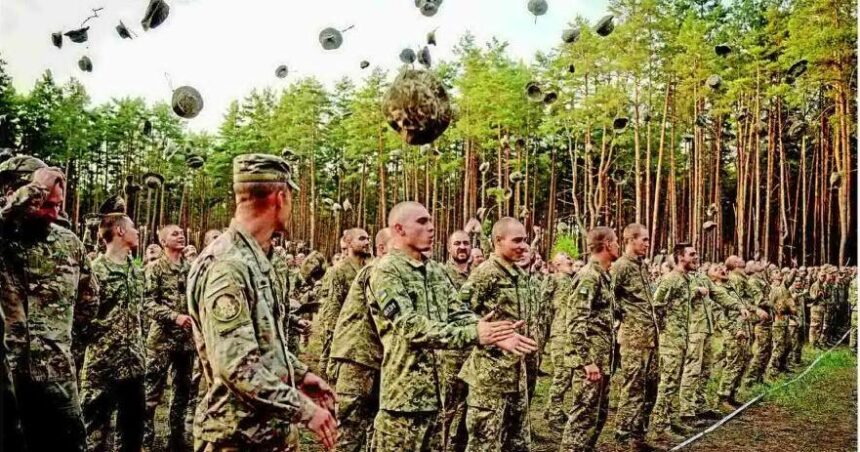Ukraine has been striving to establish a Western-style democracy, though facing challenges as it transitions from its Soviet past.
The full-scale invasion by Russia two years ago emphasized the importance of these efforts, essential for Ukraine’s aspirations to join the European Union and NATO.
However, in order to resist Russia and maintain democratic values, Ukraine found it necessary to temporarily suspend or limit certain democratic principles. This included postponing elections, restricting media freedom, deprioritizing corruption investigations, and imposing martial law that restricted movement and assembly.
Challenges in combating corruption
Upon his election in 2019, President Volodymyr Zelenskyy pledged to tackle long-standing corruption issues in Ukraine. Despite these efforts, corruption has persisted, with the military and judiciary being particularly vulnerable to graft.
Readers are also interested in…
The European Union has stressed the importance of Ukraine addressing corruption before being considered for EU membership. While some progress has been made, more needs to be done, particularly in addressing high-profile corruption cases.
Several senior officials in Ukraine, including the defense minister and agriculture minister, have been replaced in the past two years due to corruption allegations. The head of the Supreme Court was also arrested for alleged bribery.
Zelenskyy postponed the 2024 presidential election indefinitely due to the ongoing conflict, with a significant portion of Ukrainian territory under Russian occupation and millions displaced.
Russian President Putin and some U.S. lawmakers have criticized Zelenskyy’s postponement of elections, raising questions about his democratic legitimacy.
While most Ukrainians support the decision to delay the election, concerns have been raised about the concentration of power in Zelenskyy’s hands, with political rivals beginning to challenge his leadership.
Challenges faced by journalists
In the aftermath of the invasion, several Ukrainian TV networks joined forces to establish a continuous news channel, “United News Telemarathon,” to ensure information flow. Critics argue that this consolidation allows the government to control the narrative and suppress dissenting voices.
Reporters Without Borders and the U.S. State Department have raised concerns about the lack of media freedom in Ukraine, with calls for diversification and increased competition.
Although Ukraine has a vibrant online media landscape, independent journalists have reported facing intimidation and harassment from authorities.
Impact of military service
The imposition of martial law at the start of the Russian invasion granted the government sweeping powers, including property expropriation and movement restrictions. Men of conscription age are prohibited from leaving the country and are required to register with the military.
Despite these measures, there has been an unauthorized outflow of fighting-age men seeking to avoid conscription.
In response, the government suspended passport renewals and consular services for men of conscription age abroad, a move criticized by human rights groups but supported by many within Ukraine.
Research indicates that Ukrainians’ belief in democracy has not wavered, with a growing preference for democratic values over strong leadership. Previous instances of mass protests in defense of democratic principles have solidified this sentiment.
Individuals like Yehor Soboliev, who transitioned from journalism to activism and now to military service, embody the continued commitment to upholding democratic ideals amidst challenges.





